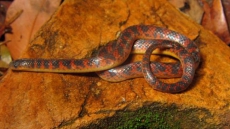A high proportion of people who survive cardiac arrest may have vivid death experiences but do not recall them due to the effects of brain injury or sedative drugs on memory circuits, a first-of-its-kind study has revealed.
In some cases of cardiac arrest, memories of visual awareness compatible with so-called out-of-body experiences (OBEs) may correspond with actual events, it added.
Researchers found that 39 percent of patients who survived cardiac arrest described a perception of awareness but interestingly did not have any explicit recall of events.
"This suggests more people may have mental activity initially but then lose the memories after recovery, either due to the effects of brain injury or sedative drugs on memory recall," explained Sam Parnia, director of resuscitation research at the State University of New York, Stony Brook in the US.
The large-scale study involving 2,060 patients from 15 hospitals in Britain, the United States and Austria was launched in 2008.
The AWARE (AWAreness during REsuscitation) study, sponsored by the University of Southampton, examined the broad range of mental experiences in relation to death to determine whether claims of awareness compatible with OBEs correspond with real or hallucinatory events.
The results of the four-year international study revealed that "the themes relating to the experience of death appear far broader than what has been understood so far or what has been described as so-called near-death experiences (NDEs)".
"Future studies should focus on cardiac arrest, which is biologically synonymous with death, rather than ill-defined medical states sometimes referred to as OBEs or NDEs," the researchers concluded.
According to Parnia, death is not a specific moment but a potentially reversible process that occurs after any severe illness or accident causes the heart, lungs and brain to cease functioning.
If attempts are made to reverse this process, it is referred to as cardiac arrest.
However, if these attempts do not succeed, it is called death.
"In this study, we wanted to go beyond the emotionally charged yet poorly defined term - NDE - to explore objectively what happens when we die," he concluded.
The results were published in the journal Resuscitation.





